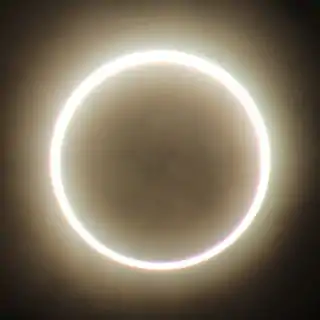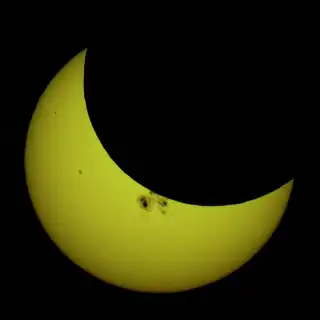| Solar eclipse of February 16, 2083 | |
|---|---|
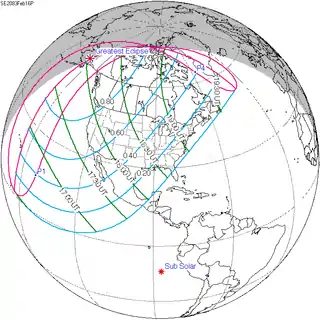 Map | |
| Type of eclipse | |
| Nature | Partial |
| Gamma | 1.017 |
| Magnitude | 0.9433 |
| Maximum eclipse | |
| Coordinates | 61°36′N 154°06′W / 61.6°N 154.1°W |
| Times (UTC) | |
| Greatest eclipse | 18:06:36 |
| References | |
| Saros | 151 (18 of 72) |
| Catalog # (SE5000) | 9693 |
A partial solar eclipse will occur on Tuesday, February 16, 2083.
Related eclipses
Solar eclipses 2080–2083
This eclipse is a member of a semester series. An eclipse in a semester series of solar eclipses repeats approximately every 177 days and 4 hours (a semester) at alternating nodes of the Moon's orbit.[1]
| 121 | March 21, 2080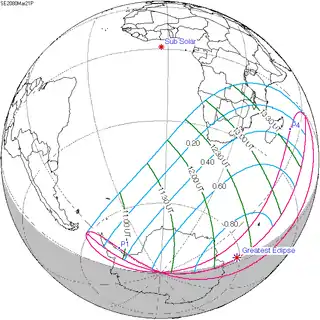 Partial |
126 | September 13, 2080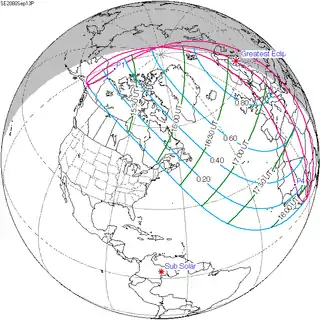 Partial |
| 131 | March 10, 2081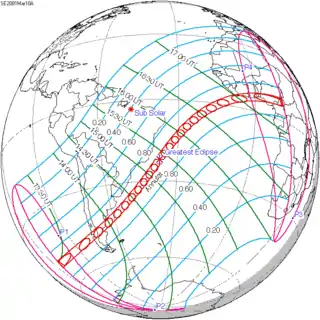 Annular |
136 | September 3, 2081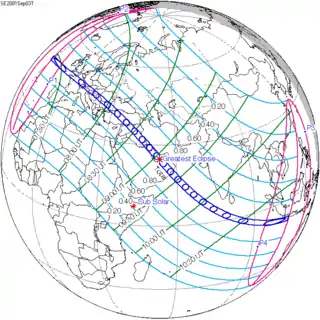 Total |
| 141 | February 27, 2082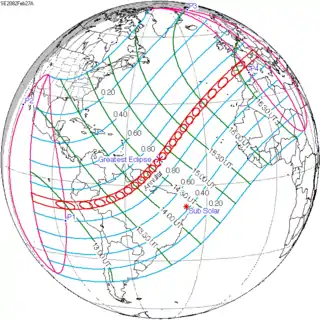 Annular |
146 | August 24, 2082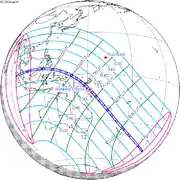 Total |
| 151 | February 16, 2083 Partial |
156 | August 13, 2083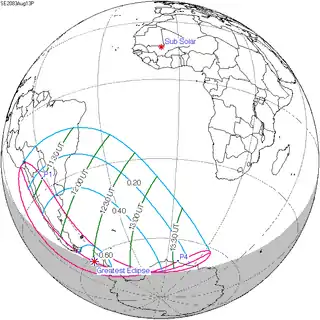 Partial |
Metonic series
The metonic series repeats eclipses every 19 years (6939.69 days), lasting about 5 cycles. Eclipses occur in nearly the same calendar date. In addition, the octon subseries repeats 1/5 of that or every 3.8 years (1387.94 days). All eclipses in this table occur at the Moon's ascending node.
| 21 eclipse events, progressing from south to north between July 13, 2018 and July 12, 2094 | ||||
|---|---|---|---|---|
| July 12–13 | April 30-May 1 | February 16–17 | December 5–6 | September 22–23 |
| 117 | 119 | 121 | 123 | 125 |
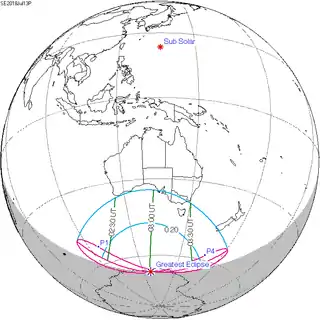 July 13, 2018 |
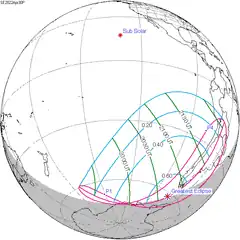 April 30, 2022 |
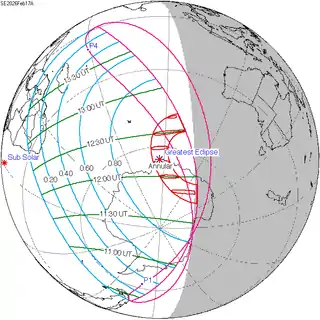 February 17, 2026 |
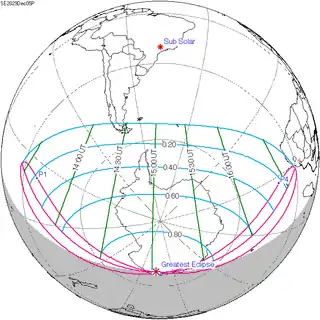 December 5, 2029 |
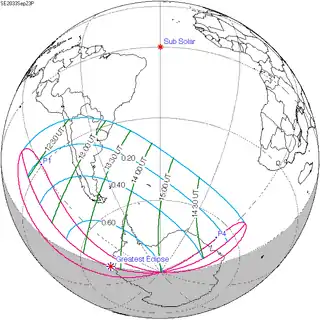 September 23, 2033 |
| 127 | 129 | 131 | 133 | 135 |
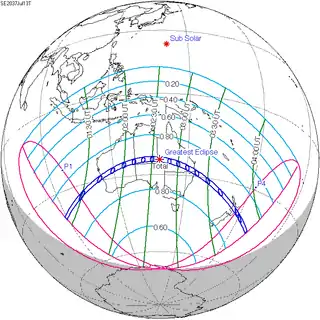 July 13, 2037 |
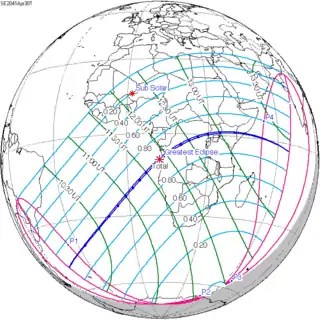 April 30, 2041 |
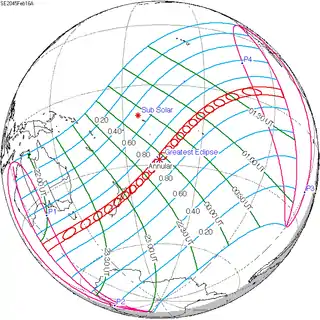 February 16, 2045 |
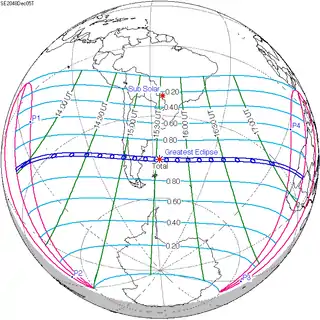 December 5, 2048 |
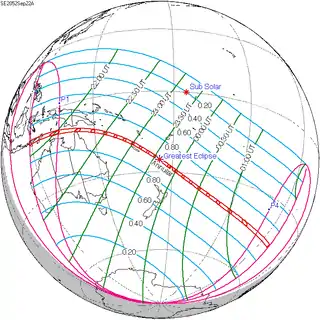 September 22, 2052 |
| 137 | 139 | 141 | 143 | 145 |
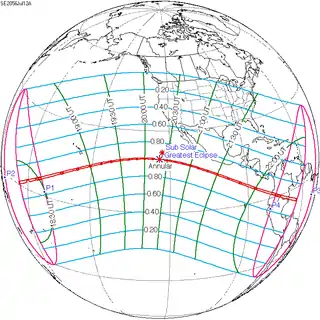 July 12, 2056 |
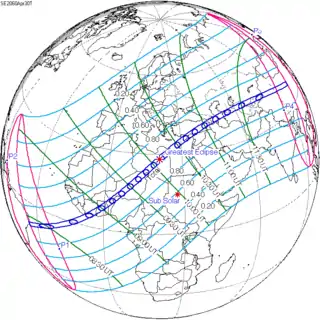 April 30, 2060 |
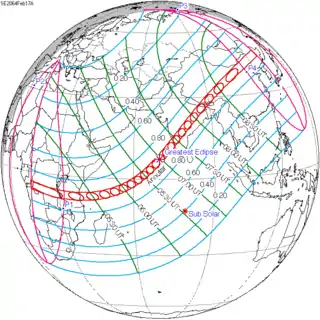 February 17, 2064 |
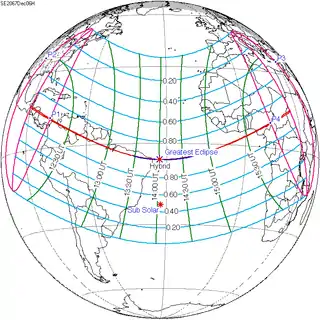 December 6, 2067 |
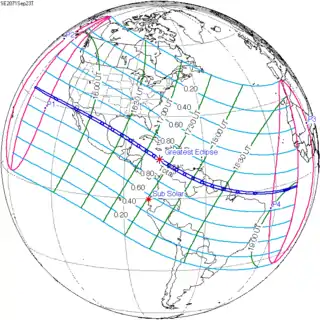 September 23, 2071 |
| 147 | 149 | 151 | 153 | 155 |
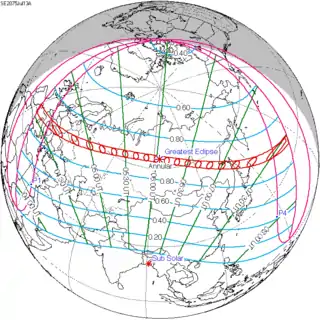 July 13, 2075 |
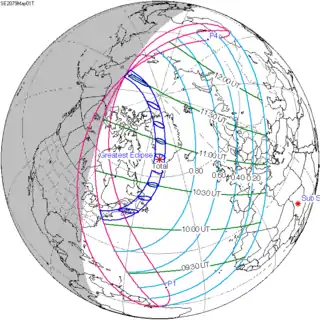 May 1, 2079 |
 February 16, 2083 |
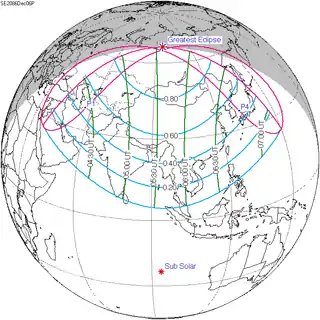 December 6, 2086 |
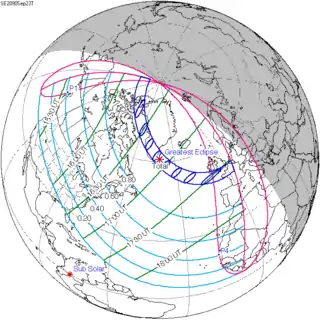 September 23, 2090 |
| 157 | ||||
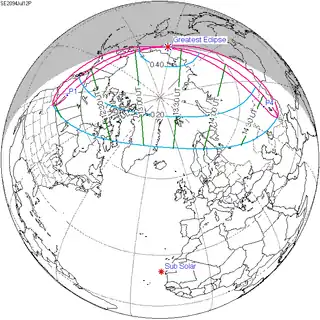 July 12, 2094 | ||||
References
- ↑ van Gent, R.H. "Solar- and Lunar-Eclipse Predictions from Antiquity to the Present". A Catalogue of Eclipse Cycles. Utrecht University. Retrieved 6 October 2018.
External links
- Earth visibility chart and eclipse statistics Eclipse Predictions by Fred Espenak, NASA/GSFC
This article is issued from Wikipedia. The text is licensed under Creative Commons - Attribution - Sharealike. Additional terms may apply for the media files.
.jpg.webp)
